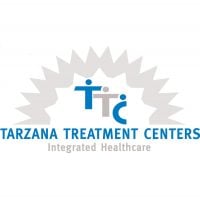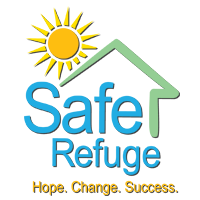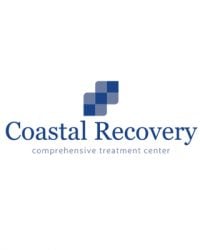National Council on Alcohol and Drug Dependence
Drug Rehab Center in Long Beach, California
- Substance Abuse
- Opioid Addiction
- Dual Diagnosis
- Drug Addiction
- Alcoholism
The National Council on Alcohol and Drug Dependence (NCADD) is a substance abuse rehabilitation center in Long Beach, California offering treatment for individuals with alcohol and opioid addictions, as well as other substance abuse issues and dual diagnosis disorders. It provides inpatient, drug rehab, and aftercare services.
Multiple patients have reported National Council on Alcohol and Drug Dependence as permanently closed.
Research other rehabs in Long Beach, California, or get help finding an open facility.
Our experts will find you an alternative facility.
(888) 674-0062 24/7 Free, Confidential, Expert HotlineAbout National Council on Alcohol and Drug Dependence in California
The National Council on Alcohol and Drug Dependence (NCADD) is a treatment facility located in Long Beach, California. It offers services to individuals who are looking to overcome addiction and achieve sobriety. The facility specializes in providing support for alcoholism, opioid addiction, substance abuse, dual diagnosis (co-occurring mental health issues), and drug addiction. NCADD provides various levels of care including aftercare support, drug rehab programs, and dual-diagnosis treatments.
At the National Council on Alcohol and Drug Dependence (NCADD) in Long Beach, individuals struggling with addiction can find a range of services to address their needs. The facility offers comprehensive treatment methods such as aftercare support designed to provide ongoing assistance once formal treatment has been completed. NCADD also provides drug rehab programs which focus on helping individuals detoxify from drugs while offering counseling and therapy sessions throughout the recovery process. Moreover, the center specializes in treating co-occurring mental health disorders alongside substance abuse through their dual-diagnosis program. At NCADD's facility in Long Beach, those seeking help can receive personalized care within an environment dedicated to supporting their journey towards lasting recovery from alcoholism or other forms of substance dependency.
Genders
Ages
Modality
Additional
Conditions and Issues Treated
A combination of treatments is often needed to treat drug abuse. Some addictions can be treated with counseling and support groups. In other cases, drug abuse can lead to a medical problem and require medical treatment. Treatment for drug addiction typically combines counseling and psychotherapy with medication and behavioral therapies.
A combination of treatments is often needed to treat drug abuse issues effectively. In the case of drug abuse, there is no easy answer or one-size-fits-all cure.
Opioid addiction has become a significant health problem in the United States. In 2015, there were 91 opioid overdose-related deaths per day, with a substantial increase in mortality rate in 2014.
When opioid addiction has reached a point where a person’s life becomes unmanageable, treatment options are available to help them get sober. Treatment that includes medical care with medications and counseling can help a user transition into sobriety.
When someone in struggles with both addiction and mental or emotional illness, this is considered a dual diagnosis. Dual diagnosis treatment can include therapy for these issues to happen simultaneously, which will allow either of them to be treated effectively.
Sometimes people who have suffered from addiction disorder also suffer from co-occurring disorders such as depression, anxiety, bipolar disorder, etc., making them “dual diagnoses.” Dual diagnoses require specialized treatment programs where drug and alcohol addiction are addressed along with psychiatric illnesses. Some rehabilitation facilities provide patients suffering from cooccurrences a program with highly integrated services and a clean environment with few distractions to help them succeed.
Levels of Care Offered
This center offers a variety of custom treatment tailored to individual recovery. Currently available are Aftercare Support, Drug Rehab, Dual-Diagnosis, Inpatient, with additional therapies available as listed below.
Inpatient treatment for alcoholism or drug addiction is an option that provides the addict with a supportive environment in which they can stop using. After detox, an inpatient treatment center provides a structured environment for the addict to recover from their addiction and begin taking steps toward a lifetime of sobriety.
This type of treatment is appropriate for addicts that are most in need of intensive care and supervision. This includes those who were unable to quit on their own, those who need more structure than they can get in outpatient treatment, and those whose addiction has led them into legal trouble or severe health problems.
Completing a drug or alcohol rehab program is only the first step. Then comes aftercare support. These services include sober living accommodations, career counseling, and AA/NA programs for those struggling with sobriety or who want help maintaining it after initial rehab at an addiction facility.
They can last up to a year or more depending on what’s needed most urgently after the earlier stages are completed.
Therapies & Programs
Because no single treatment is effective for all addicts, the goal of treatment and therapy should be to figure out what works best for each individual. Tolerance and withdrawal levels differ from person to person, affecting the treatment intensity required. Addiction treatment should aim to help addicts develop healthy coping mechanisms for dealing with their addiction and its underlying causes.
Group therapy can help build a stronger support system and give addicts in Long Beach, CA insight into their addiction that they gain through shared conversations. Group therapy occurs in a controlled group environment, exclusive of one on one meetings. This makes it safer for patients to feel comfortable sharing the struggles they’re going through and gaining perspective.
Payment Options Accepted
For specific insurance or payment methods please contact us.
Additional Details
Specifics, location, and helpful extra information.
Long Beach, California 90813 Phone Number(562) 426-8262 Meta DetailsUpdated November 25, 2023
Staff Verified
National Council on Alcohol and Drug Dependence Patient Reviews
There are no reviews yet. Be the first one to write one.
Long Beach, California Addiction Information
More than 3 million of California's citizens are addicted to illegal drugs. Almost 800,000 people use hard drugs, almost 5 million use marijuana, and another 2.1 million abuse alcohol every year. Other substance abuse issues such as binge drinking and teen drug use are also common. Many illegal drugs such as cocaine, heroin, methamphetamine, and marijuana are smuggled into the state from Mexico.
Nearly 9.8% of the population of Long Beach, CA, abuses drugs or alcohol. From 2002 to 2016, Long Beach saw a 245% increase in opioid-related hospitalizations. In 2015, 2% of eighth-graders reported using ecstasy. In 2016, Long Beach had a rate of drug overdose deaths more than 2.5 times that of the U.S. Drug treatment in Long Beach, typically involves detoxification, therapy, and aftercare support.
Treatment in Nearby Cities
- Santa Rosa, CA (409.4 mi.)
- El Centro, CA (166.9 mi.)
- Compton, CA (8.2 mi.)
- Turlock, CA (297.0 mi.)
- Rosemead, CA (22.1 mi.)
Centers near National Council on Alcohol and Drug Dependence



The facility name, logo and brand are the property and registered trademarks of National Council on Alcohol and Drug Dependence, and are being used for identification and informational purposes only. Use of these names, logos and brands shall not imply endorsement. RehabNow.org is not affiliated with or sponsored by National Council on Alcohol and Drug Dependence.
